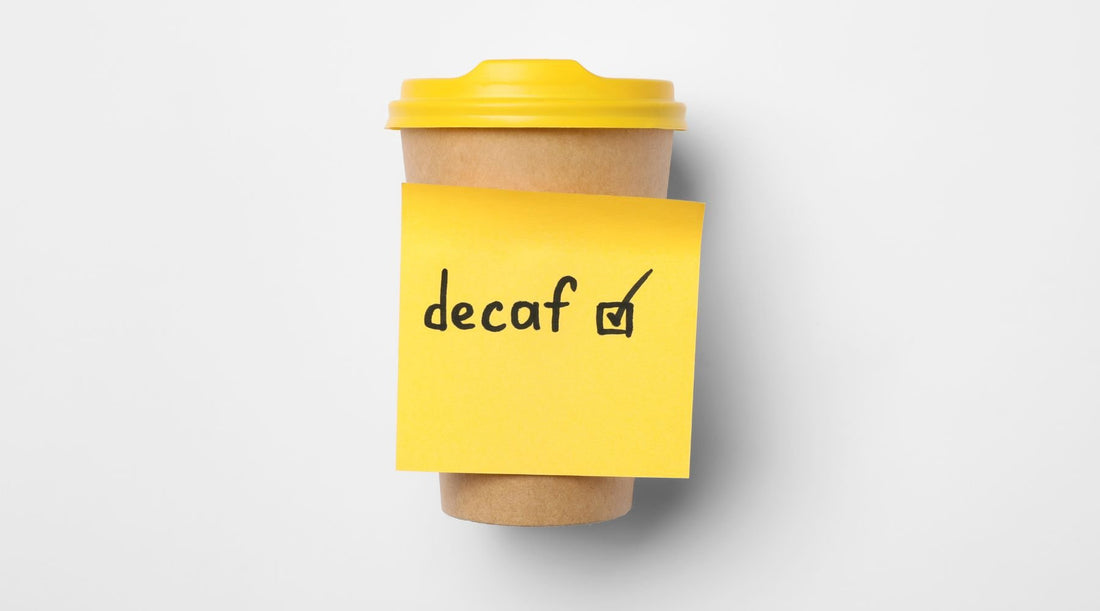Decaffeinated coffee, or decaf, has often been viewed as the lesser sibling of regular coffee. Some people even claim it's "not real coffee." But there's more to the story. Decaf is rising from the shadows, carving its place in the coffee culture, and is more than just a caffeine-free choice. Although it's still challenging to find excellent specialty decaf coffee, the increasing demand for quality and variety is inspiring roasters and producers to explore new methods and high-quality beans, broadening the options for those who seek the rich experience of coffee without the caffeine.
The Rising Popularity
With an increasing awareness of wellness, lifestyle needs, and late-night cravings, decaf is stepping into the spotlight. Let's dive into the complexities behind decaffeination and uncover the extraordinary journey of decaf.
The History of Decaf - A Taste Without the Buzz
It all began with an accident: Ludwig Roselius, a German coffee merchant, stumbled upon the idea of decaffeinated coffee almost by chance in the early 1900s. During a shipment of coffee beans, a container was accidentally soaked in seawater, which led to a significant reduction in the beans' caffeine content. Intrigued by this unexpected occurrence, Roselius began experimenting.
He discovered that using various water-based solutions, along with other compounds, could effectively extract caffeine from the beans without entirely eliminating their flavor. This was a ground-breaking realization at a time when the negative effects of caffeine were becoming more widely recognized.
Roselius's experimentation became a patented method in 1906. He refined the process, employing benzene as a solvent to remove caffeine, a method later replaced due to health concerns. The first commercial decaffeinated coffee brand, "Sanka," was introduced by Roselius's company, Kaffee HAG, and it played a vital role in the acceptance and growth of decaf coffee worldwide. Roselius's accidental discovery and subsequent development of decaffeination methods laid the foundation for the various processes used today, allowing coffee enthusiasts to enjoy the flavor of coffee without the stimulating effects of caffeine. It also opened a new avenue for research and innovation, promoting health-conscious choices in the world of coffee.
Development of Decaffeination Methods:
- Benzene Era: Abandoned due to health risks.
- Chemical Methods: Safer practices emerged, such as methylene chloride and ethyl acetate.
- Natural and Water Processes: The Swiss Water Process brought forth a more eco-friendly approach, reflecting the growing demand for quality, sustainability, and ethical sourcing.
Swiss Water Process - The Natural Way
A method that began in Switzerland in the 1930s and refined over the years, the Swiss Water Process has become a hallmark for quality decaf.
How It Works: Green coffee beans undergo a process of soaking and filtering, removing 99.9% of caffeine and retaining the unique flavor.
Here’s a great article on Sweet Maria’s website explaining everything about this process.
Decaf Flavor Profiles – The Art of Flavor Preservation
How Decaffeination Affects Flavor:
- Choice of Bean: Starting with high-quality beans is vital for a rich flavor experience. It's not just about removing caffeine; it's about crafting a masterpiece.
- Roasting Craftsmanship: Roasting decaffeinated beans takes finesse and love to unlock the flavors without bitterness.
Common Myths Debunked:
- Myth 1: Decaf Lacks Flavor: Modern decaf is a melody of tastes, all thanks to technological advancements.
- Myth 2: Decaf Isn't for Coffee Lovers: Decaf is genuine coffee without the caffeine rush. It's a joy for both newcomers and seasoned coffee enthusiasts.
- Myth 3: Decaf Processing Destroys Quality: The quality of decaf depends on the method, beans, and craftsmanship.
Embracing Decaf
Decaffeinated coffee has come a long way since its accidental discovery. Through innovative methods like the Swiss Water Process, the production of decaf coffee ensures that flavor and quality are maintained. Debunking myths and understanding how decaffeination affects flavor helps us appreciate decaf as a valid choice for those seeking caffeine-free alternatives. Whether you're a seasoned coffee enthusiast or someone new to this world, decaf coffee offers an array of flavors and options, all without the caffeine. It's a unique part of the coffee landscape that continues to grow in popularity and deserves a place in our cups.
